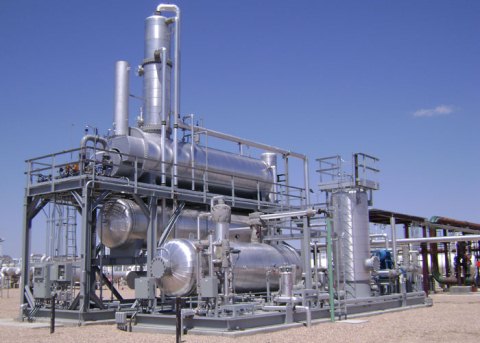Course Details
Your Growth, Our Mission

Course Description
The Training Course Will Highlight ?
Training Objective
To understand the Process of dehydration and hydrate inhibition and its methods, troubleshooting, evaluating the performance of solid desiccant dehydrators and specialized dehydration processes.
Target Audience
Engineers and operators works in operation, design and maintenance fields.
Training Methods
This interactive Training will be highly interactive, with opportunities to advance your opinions and ideas and will include;
- Lectures
- Workshop & Work Presentation
- Case Studies and Practical Exercise
- Videos and General Discussions
Daily Agenda
Introduction To Hydrate Inhibition And Dehydration:
- Appropriate methods of dehydration or hydrate inhibition.
- Problems related to water in process streams associated with natural gas processing and compressed air facilities.
- Methods and equipment used to measure the water content of natural gas streams.
- Calculating the saturated water content of hydrocarbon gases and liquids.
- Determining the hydrate-formation temperature of sweet and sour gas streams.
Hydrate Inhibition Methods:
- Temperature control methods and equipment used to inhibit hydrate formation in a natural gas stream.
- Calculating methanol injection rate required to inhibit hydrate formation in a natural gas stream.
- Calculating glycol injection rate required to inhibit hydrate formation in a natural gas stream.
- Procedures and Resources for Calculating Methanol Injection Rate Required to Inhibit Hydrate Formation in a Natural Gas Stream.
- Procedures and Resources for Calculating Glycol Injection Rate Required to Inhibit Hydrate Formation in a Natural Gas Stream.
Troubleshooting Glycol Dehydration Systems:
- Describing the glycol dehydration process.
- Determining appropriate glycol types and lean glycol concentrations for the dehydration of natural gas streams.
- Calculating the required diameters of inlet scrubbers.
- Determining glycol circulation and water removal rates.
- Determining the required size of contactor columns.
- Calculating the heat load on a reboiler.
- Determining the required size of a flash drum separator.
- Determining the required size of a stripping column.
- Recommending actions to correct faulty glycol dehydration systems.
Evaluating The Performance of Solid Desiccant Dehydrators:
- Determining an appropriate solid desiccant type for a dehydration system.
- Process flow and the function of the major components of solid desiccant dehydrators.
- Effects of key process variables on the operation of a solid desiccant dehydrator.
- Calculating the required size of adsorber towers.
- Estimating the optimum drying cycle time for a solid desiccant dehydrator.
- Calculating regeneration heat loads and the required regeneration gas flow rates of a solid desiccant dehydrator.
- Determining actions that optimize the regeneration heating cycle of a solid desiccant dehydrator.
- Determining possible causes of and corrective actions for capacity and efficiency problems of solid desiccant dehydrators.
- Procedures resources for determining an appropriate solid desiccant type for a dehydration system.
- Procedures and resources for calculating the required size of an adsorber tower.
- Procedures and resources for estimating the optimal drying cycle time for a solid desiccant dehydrator.
- Procedures and resources for calculating the regeneration heat loads and the required regeneration gas flow rates of a solid desiccant dehydrator.
- Procedures and resources for determining actions that optimize the regeneration heating cycle of a solid desiccant dehydrator.
- Procedures and resources for determining possible causes of and corrective actions for capacity and efficiency problems of solid desiccant dehydrators.
Specialized Dehydration Processes:
- Operation of and equipment that is used for specialized dehydration processes.
- Advantages, disadvantages, and applications of special dehydration processes.
- Advantages, disadvantages, and applications of glycol and regenerative solid desiccant systems.
Accreditation
BTS attendance certificate will be issued to all attendees completing minimum of 80% of the total course duration.
Quick Enquiry
Request Info
Related Courses
Your Growth, Our Mission

